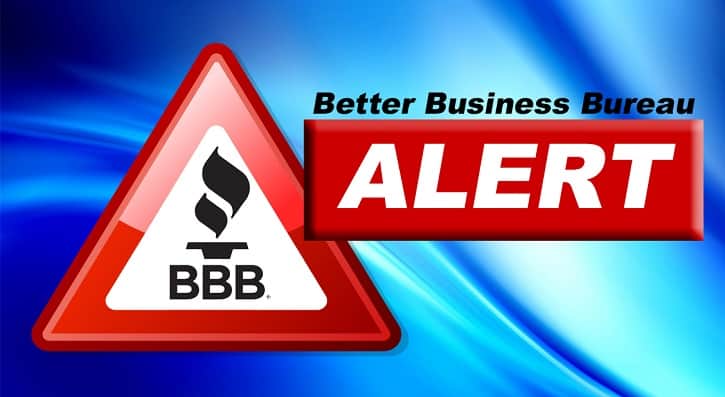The Better Business Bureau has issued a warning to consumers about a new text message scam posing as the Indiana Department of Workforce Development.
In previous years, scammers have preyed on individuals who had applied for unemployment benefits. In the new text scam, consumers receive a text that’s said to be from Workforce Development claiming to have a $3800 payment available for returning to work, as part of a program called “Back2Work.”
The message claims that the money will be direct deposited once the user clicks the link in the text message.
However, the BBB warns the links may contain malware, which could access sensitive information on your device and result in possible identity theft.
The DWD confirmed they will not ask to verify information via text. Instead, users will be prompted to verify their information using the state’s ID.me portal.
They encourage those who receive this text not to click on any links and delete any text claiming to be from DWD.
If the link is clicked, it is possible the scammer will have access to information on the user’s device which could allow access to take over an unemployment claim or other personal information.
Use BBB’s tips to avoid text scams:
- Watch out for suspicious links.
- Most scam text messages contain a link for you to click on. Scammers hope their message will cause you to feel so scared or excited, you’ll click the link without thinking.
- Some of these links could download malware onto your device. Others may lead you to lookalike websites where scammers hope to harvest your personal information, login ID, and passwords.
- If you spot a scam text, don’t reply. Some scammers ask you to text “STOP” or “NO” so you won’t receive future texts. In reality, your reply tells them they have a real, active phone number and could open you up to future attacks.
- If a text message seems suspicious, don’t reply. Block the number and erase the message.
- Look for spelling and grammar errors. A large number of fake texts originate with offshore companies where they may be crafted by someone who isn’t completely fluent in the English language.
- Some scammers are highly skilled in English and it may even be their first language, so not every fake text you receive will follow this rule.
- If a website looks real, check again. If you do click on a link in a suspicious text message and it appears to take you to an official business website, don’t immediately let your guard down. Scammers can create a carbon copy of a legitimate website and if you login on the fake site they can steal your username and password. Check the URL carefully to make sure you are on the official website before you navigate within it.
- Keep your antivirus software up to date. Antivirus software can alert you to fake and unsafe websites if you happen to click on a link in an unsolicited text message. Keep the software installed and up to date to protect yourself against scammers.
If you spot a scam, whether you’ve lost money or not, report it to BBB’s Scam Tracker at www.BBB.org/ScamTracker and the FTC at www.ReportFraud.ftc.gov.


3 comments
[…] Original Source link […]
[…] #Business #Bureau #warns #text #message #scamSource link […]
[…] source […]